Zoho Review: Enhance Sales and Productivity with Zoho CRM
 Zoho Review: Enhance Sales and Productivity with Zoho CRM
Zoho Review: Enhance Sales and Productivity with Zoho CRM
Zoho Review: Enhance Sales and Productivity with Zoho CRM
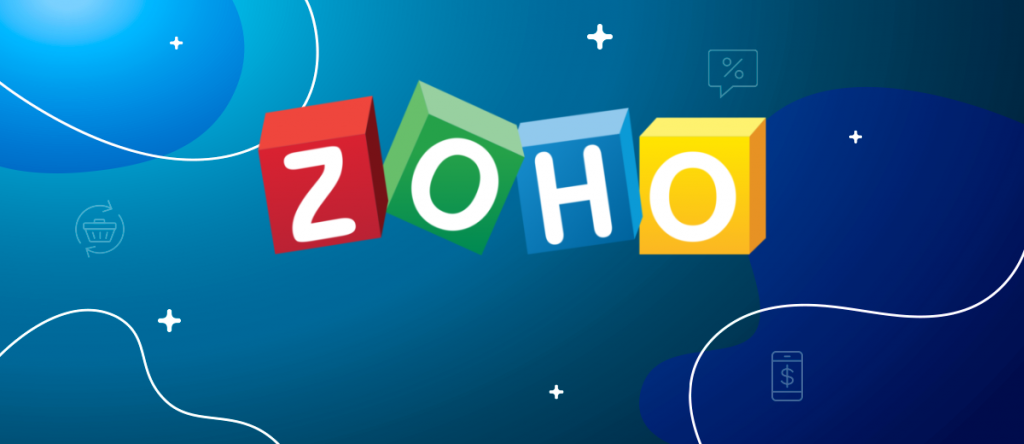
Zoho CRM Overview:
Zoho CRM has emerged as a dominant player in the Customer Relationship Management (CRM) software market, and its comprehensive suite of features and user-friendly interface has garnered significant attention from businesses of all sizes. A recent blog that conducted a complete review of Zoho CRM shed light on its numerous benefits, wide-ranging features, pricing structure, and competitive edge in the market.
The blog highlighted the key benefits of Zoho CRM, emphasizing its ability to streamline sales processes, enhance customer engagement, and improve overall productivity. With an intuitive interface and customizable modules, Zoho CRM offers businesses the flexibility to adapt the software to their unique requirements, making it a suitable choice for various industries.
One of the standout features of Zoho CRM, according to the review, is its automation capabilities. The software enables users to automate repetitive tasks, such as lead capture, email marketing, and follow-up reminders, saving valuable time and resources. Additionally, the integration of AI-powered tools empowers sales teams with actionable insights, helping them make data-driven decisions and improve their sales performance.
Regarding pricing, the blog delved into the various plans offered by Zoho CRM. From the free edition for small businesses to the feature-rich Enterprise edition for large enterprises, Zoho CRM provides a scalable solution that aligns with the needs and budgets of different organizations. This flexibility has contributed to its widespread adoption across diverse industries.
The review also highlighted Zoho CRM’s competitive advantage over other CRM solutions. With seamless integration of other Zoho apps, such as Zoho Desk and Zoho Analytics, users can create a holistic ecosystem that caters to various aspects of their business operations. This integration fosters better collaboration among teams and improves overall efficiency.
In conclusion, the comprehensive review of Zoho CRM revealed that the software has rightfully earned its reputation as a top-tier CRM solution. With its wide array of features, customization options, affordability, and seamless integration with other Zoho applications, Zoho CRM stands out as an ideal choice for businesses looking to enhance their sales processes, optimize customer relationships, and drive long-term growth.
What is Zoho CRM?
Zoho CRM is a cloud-based Customer Relationship Management (CRM) software developed by Zoho Corporation. It serves as a powerful tool for businesses to manage and nurture their customer relationships effectively. Zoho CRM allows organizations to streamline their sales, marketing, and customer support processes, providing a centralized platform for data management and collaboration.
With Zoho CRM, businesses can efficiently track leads, manage sales pipelines, and automate various sales tasks, improving overall productivity and sales performance. The software offers a range of features, including contact management, sales forecasting, email marketing, and analytics, empowering businesses to make data-driven decisions and optimize their sales strategies.

Zoho CRM’s user-friendly interface and customizable modules make it suitable for companies of all sizes and industries. It integrates seamlessly with other Zoho applications and third-party services, allowing users to create a cohesive ecosystem that supports various aspects of their business operations.
As a cloud-based solution, Zoho CRM enables real-time access to customer data, facilitating remote work and enhancing collaboration among team members. Overall, Zoho CRM is a comprehensive and flexible CRM solution that equips businesses with the tools they need to build strong customer relationships, drive growth, and stay competitive in today’s dynamic market.
Is Zoho CRM Right For You?
Whether Zoho CRM is right for you depends on your specific business needs and requirements. If you are looking for a comprehensive, user-friendly, and cost-effective CRM solution, Zoho CRM could be a suitable choice.
Zoho CRM is ideal for businesses of all sizes and industries that seek to streamline their sales, marketing, and customer support processes. It offers a wide range of features, including lead management, sales automation, email marketing, and analytics, empowering businesses to efficiently manage their customer relationships and drive growth.
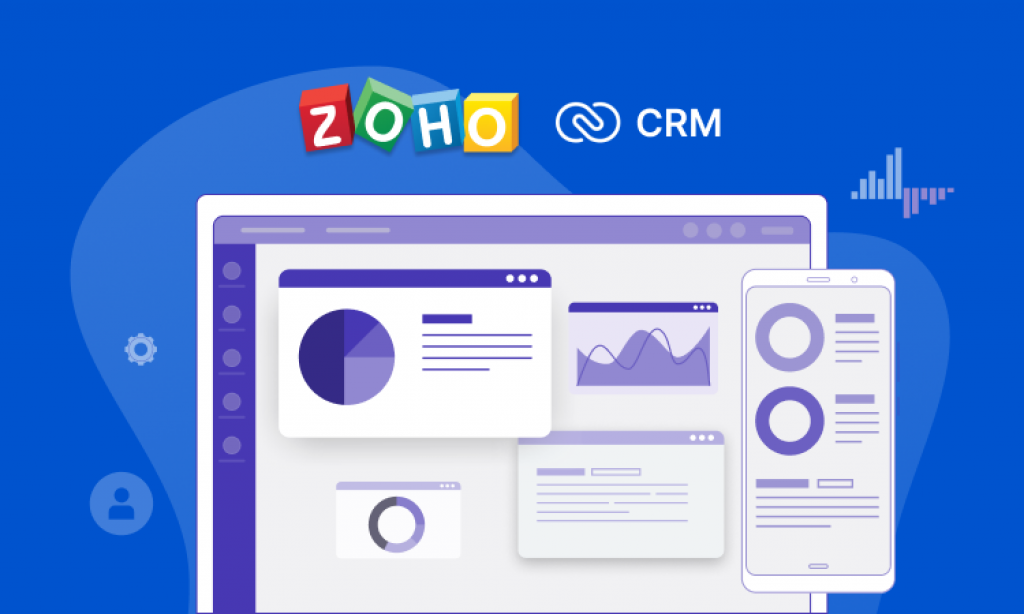
If you value customization, Zoho CRM’s flexible modules allow you to tailor the software to your unique workflows and business processes. It integrates seamlessly with other Zoho applications and third-party tools, providing a cohesive ecosystem to manage various aspects of your business operations.
Moreover, with its cloud-based nature, Zoho CRM enables remote access to customer data, facilitating collaboration among team members, even across different locations.
However, if your business requires specific features not available in Zoho CRM or if you are heavily invested in another CRM system, it may be essential to compare alternatives before making a decision.
Pros and Cons:
Pros of using Zoho CRM:
- Comprehensive Feature Set: Zoho CRM offers a wide range of features, including lead management, sales automation, marketing automation, analytics, and customer support. This comprehensive feature set provides businesses with a holistic solution to manage their customer relationships efficiently.
- Customization Options: Zoho CRM allows users to customize the platform according to their unique business requirements. The ability to tailor the software to specific workflows and processes ensures a personalized user experience and better alignment with organizational needs.
- User-friendly Interface: The platform boasts an intuitive and user-friendly interface, making it easy for both new and experienced users to navigate and adapt quickly. This lowers the learning curve and promotes better user adoption within the organization.
- Integration Capabilities: Zoho CRM seamlessly integrates with other Zoho applications and third-party tools, creating a unified ecosystem for managing various aspects of the business. This integration enhances productivity, data consistency, and collaboration among teams.
- Mobile Accessibility: Zoho CRM’s mobile app enables users to access and update customer data on the go. This mobility facilitates remote work and empowers sales teams to stay connected and responsive to customer needs.
Cons of using Zoho CRM:
- Complexity for Advanced Users: While Zoho CRM is user-friendly for basic functionalities, advanced customization, and configuration might require technical expertise. Users with complex workflows or specific business needs may face challenges in setting up the system accordingly.
- Limited Reporting and Analytics: The reporting and analytics capabilities in Zoho CRM may not be as robust as some other dedicated business intelligence tools. Businesses with intricate reporting requirements may need to supplement the CRM with additional analytics software.
- Pricing Structure: While Zoho CRM offers a free version for smaller businesses, the more advanced features and user licenses come with subscription fees. This pricing structure might be a concern for organizations with tight budgets or those that require a large number of users.
- Customer Support: Some users have reported challenges with customer support, citing response times and resolution efficiency. While Zoho offers support options, it may not meet the expectations of all users.
- Third-party Integrations: Although Zoho CRM integrates with many popular third-party tools, there may be instances where certain niche or specialized software requires custom integration, which could be more challenging to implement.
Zoho CRM Benefits:
- Enhanced Customer Relationship Management: Zoho CRM provides a centralized platform to store and manage customer data, allowing businesses to build strong and lasting relationships with their clients. Access to comprehensive customer information enables personalized interactions and better customer understanding.
- Streamlined Sales Processes: Zoho CRM automates various sales tasks, such as lead capturing, nurturing, and follow-up reminders. This automation streamlines the sales process, reduces manual efforts, and enables sales teams to focus on closing deals efficiently.
- Improved Sales Performance: With insightful analytics and reporting tools, Zoho CRM empowers sales teams to make data-driven decisions. Access to key performance metrics and sales forecasts helps identify areas for improvement and optimize sales strategies, leading to improved overall sales performance.
- Efficient Marketing Automation: Zoho CRM’s marketing automation features enable businesses to execute targeted marketing campaigns, manage email marketing, and track campaign performance. This automation boosts marketing efficiency and increases lead conversion rates.
- Seamless Integration with Other Zoho Apps: Zoho CRM seamlessly integrates with other Zoho applications, such as Zoho Desk for customer support and Zoho Analytics for advanced reporting. This integration fosters better collaboration among teams and ensures a unified ecosystem for all business operations.
- Mobile Accessibility: Zoho CRM offers a mobile app that allows users to access and update customer data on the go. This mobile accessibility facilitates remote work, enhances responsiveness, and ensures seamless customer interactions.
- Customization and Scalability: Zoho CRM is highly customizable, allowing businesses to tailor the software to their specific workflows and processes. This flexibility ensures that the CRM solution can adapt to the changing needs of growing organizations.
- Cost-Effective Solution: Zoho CRM provides a free version for smaller businesses with limited users, making it an affordable option for startups and small enterprises. Additionally, its tiered pricing structure offers various plans suitable for businesses of all sizes, ensuring cost-effectiveness based on individual requirements.
Easy To Use:
Zoho CRM stands out for its remarkable ease of use, making it a popular choice among businesses seeking a user-friendly CRM solution. The platform’s intuitive interface and well-organized layout contribute to a seamless user experience, catering to both beginners and experienced users alike.
Navigating through Zoho CRM is straightforward, with clearly labeled menus and icons that guide users through various functions. The platform’s drag-and-drop features enable easy customization, allowing businesses to tailor the CRM to their specific needs without the need for extensive technical knowledge.
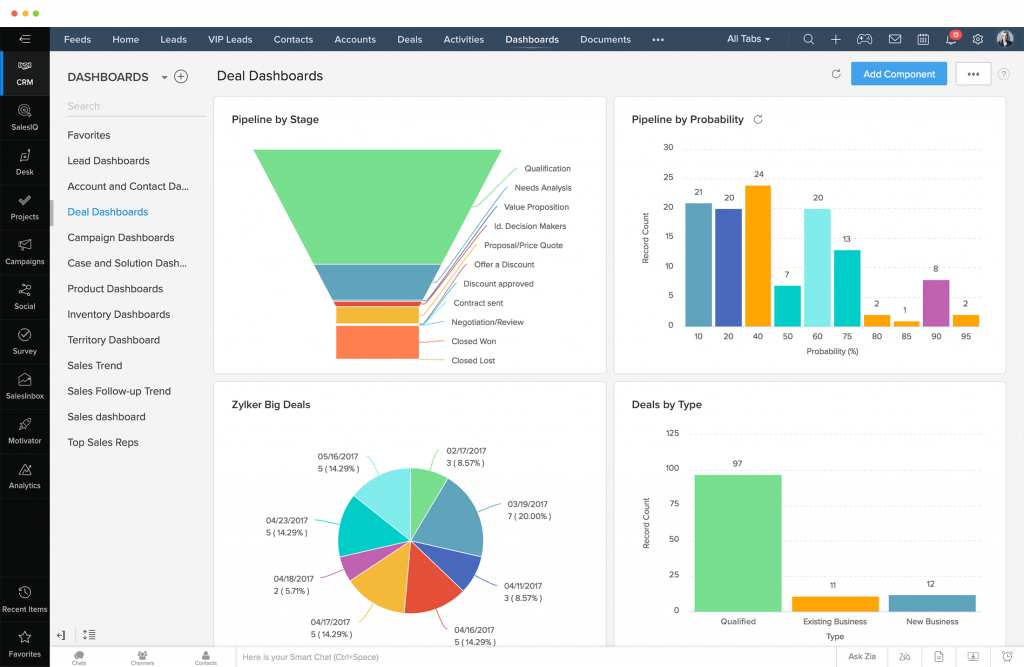
Zoho CRM’s user-centric design extends to its various modules, such as lead management, sales automation, and marketing automation. The straightforward workflows and step-by-step processes make it easy for users to adopt and implement CRM into their daily operations.
Furthermore, the platform offers extensive documentation and tutorials, ensuring that users can quickly get up to speed and make the most of its features. The availability of customer support and a vibrant community forum further enhances the ease of use, as users can find solutions and troubleshoot issues efficiently.
Overall, Zoho CRM’s emphasis on simplicity and accessibility makes it an ideal choice for businesses seeking a hassle-free CRM solution that boosts productivity, streamlines operations, and fosters a positive user experience across the organization.
Zoho CRM Features:
Zoho CRM is a feature-rich Customer Relationship Management (CRM) software designed to help businesses efficiently manage their customer interactions and sales processes. With a comprehensive set of tools and functionalities, Zoho CRM offers lead management, sales automation, marketing automation, and customer support capabilities. Its intuitive interface and customizable modules make it user-friendly and adaptable to various industries and business sizes. The platform’s analytics and reporting features provide valuable insights for data-driven decision-making, while seamless integration with other Zoho applications ensures a cohesive ecosystem for streamlined operations. Zoho CRM is a powerful solution for businesses aiming to enhance customer relationships and drive sales growth.
1. Lead Capture:
“Lead Capture” is a vital feature of Zoho CRM that revolutionizes how businesses capture, manage, and nurture potential customers. It streamlines the lead acquisition process by automating lead generation and data entry, ensuring no opportunity slips through the cracks.
Through various channels such as websites, social media, web forms, and emails, Zoho CRM captures leads and automatically creates records with essential contact details and lead sources. This automation reduces manual data entry, saving time and minimizing errors while maintaining a centralized repository of lead information.
The feature goes beyond simple data capture; it also enables lead segmentation and scoring. Businesses can prioritize leads based on their potential value, allowing sales teams to focus efforts on high-value prospects and optimize conversion rates.
Furthermore, the seamless integration with other Zoho applications and third-party tools enhances lead nurturing throughout the sales funnel. Marketing and sales teams can collaborate effectively, ensuring a cohesive approach to lead management.
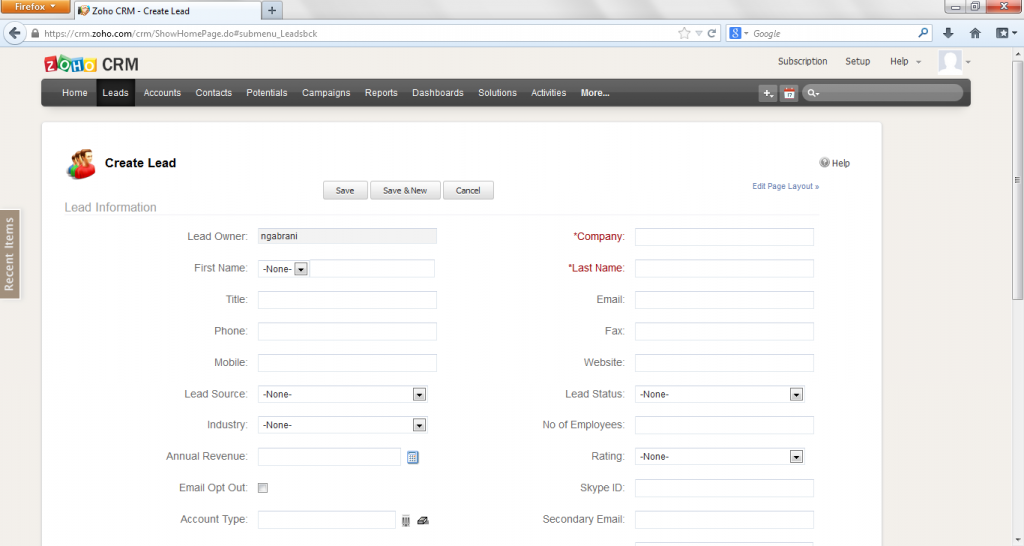
2. Contact Management:
Contact Management is a key feature of Zoho CRM that empowers businesses to efficiently organize, track, and nurture their customer contacts. It serves as a centralized repository, storing vital information such as names, addresses, phone numbers, email addresses, and more.
With Zoho CRM’s contact management, businesses can easily segment contacts based on various criteria, such as industry, location, or engagement level. This segmentation enables targeted marketing efforts and personalized interactions with customers, fostering stronger relationships.
The feature also facilitates easy communication through its integration with email and other communication channels. Users can track all interactions with contacts, ensuring a comprehensive view of customer history.
Moreover, Zoho CRM’s contact management is mobile-friendly, enabling access to contact details and interactions on the go, facilitating remote work and real-time collaboration among team members.
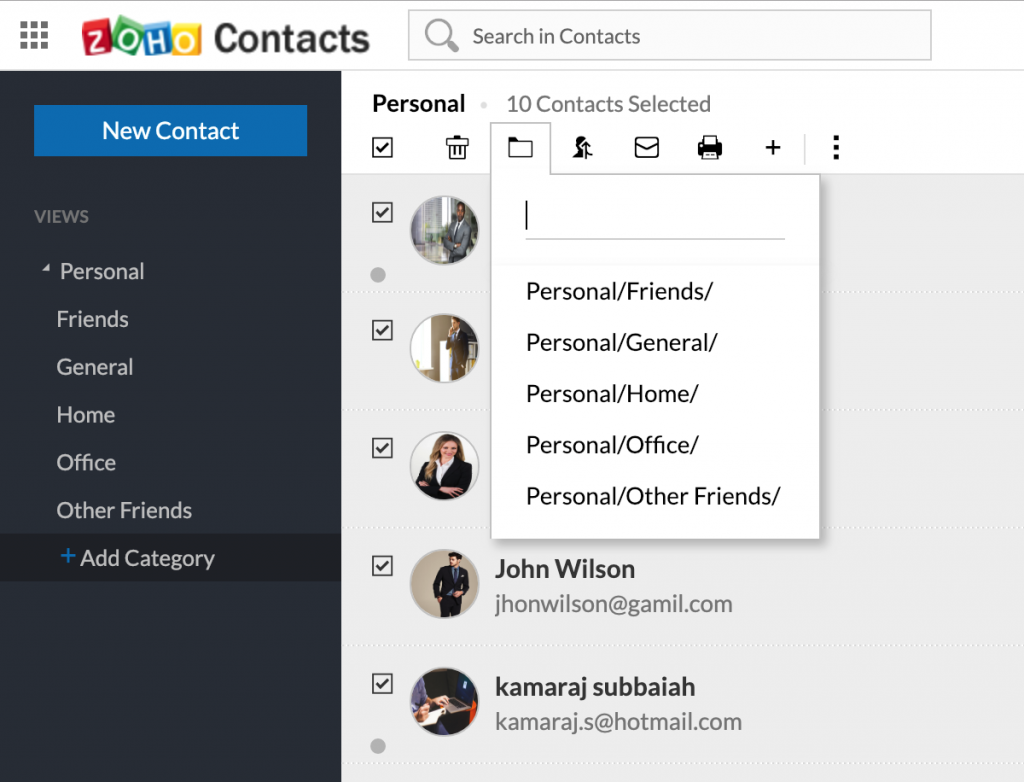
3. Communication Channels:
“Communication Channels” is a crucial feature of Zoho CRM that enhances customer engagement and streamlines communication for businesses. This feature integrates various communication channels, including email, phone calls, and social media, within the CRM platform, providing a unified hub for all customer interactions.
Zoho CRM’s communication channels enable seamless and efficient communication with customers. Users can send and receive emails directly from the CRM, keeping track of all correspondence and ensuring a comprehensive view of customer communication history.
With built-in call integration, users can make and receive phone calls from within the CRM, making it convenient to log call details and follow up on conversations. This feature enhances the efficiency of sales and customer support teams, promoting better customer service.
Additionally, the integration with social media platforms allows businesses to engage with customers on popular social channels, enabling timely responses to inquiries and feedback.

4. Deal Management:
Zoho CRM’s “Deal Management” is a vital feature designed to streamline the sales process and empower businesses to effectively manage their sales opportunities. This feature provides a centralized platform for tracking and monitoring deals throughout their lifecycle, from initial prospecting to closing.
With Zoho CRM’s Deal Management, users can create and customize deal records, including deal value, expected closure date, and associated contacts. This allows sales teams to prioritize and strategize their efforts based on the potential value and timeline of each deal.
The feature facilitates real-time deal tracking, providing a clear overview of all deals in progress, their stages, and associated activities. Sales representatives can manage tasks, schedule follow-ups, and collaborate with team members to drive deals forward.
Furthermore, Deal Management’s reporting and analytics capabilities offer valuable insights into sales performance and deal conversion rates, empowering businesses to make data-driven decisions and optimize their sales strategies.
5. Workflow Automation:
Zoho CRM’s “Workflow Automation” is a powerful feature that streamlines business processes and enhances productivity by automating repetitive tasks and activities. With Workflow Automation, businesses can create custom workflows that define a series of actions triggered by specific events or conditions.
This feature eliminates manual interventions, ensuring tasks are completed accurately and efficiently. It automates the lead assignment, task creation, email notifications, and updates to records, saving valuable time for sales and marketing teams.
Zoho CRM’s Workflow Automation enables businesses to establish consistent and standardized processes, reducing the chances of errors and ensuring a seamless customer experience. The customizable nature of the workflows allows businesses to tailor the automation to their unique needs and requirements.
By automating routine tasks, teams can focus on higher-value activities, such as building customer relationships and closing deals. This feature empowers businesses to enhance efficiency, reduce manual efforts, and ultimately drive better results across the entire CRM ecosystem.
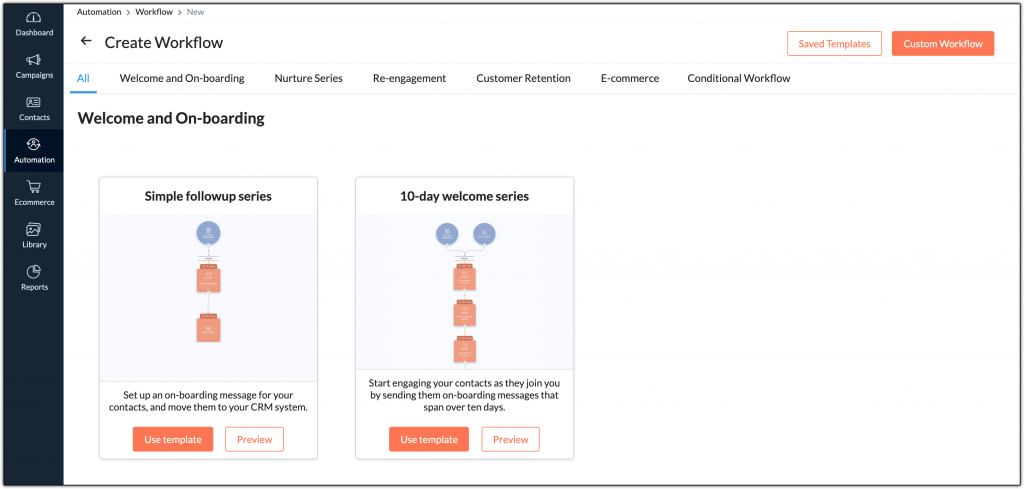
6. Reporting:
Zoho CRM’s “Reporting” feature is a powerful tool that provides businesses with valuable insights and analytics to make data-driven decisions. With a wide range of customizable reporting options, businesses can visualize and analyze their sales, marketing, and customer support performance.
The Reporting feature allows users to create and schedule reports based on various metrics, such as sales revenue, lead conversion rates, and customer engagement. These reports can be presented in the form of charts, graphs, or tabular formats, making them easy to interpret and share with stakeholders.
Zoho CRM’s reporting capabilities enable businesses to identify trends, strengths, and areas for improvement. This data-driven approach helps sales teams optimize their strategies, improve forecasting accuracy, and enhance overall productivity.
With real-time data updates and historical comparison, Reporting in Zoho CRM empowers businesses to gain actionable insights, optimize processes, and drive growth. It serves as an indispensable tool for businesses seeking to stay competitive and make informed decisions based on accurate and up-to-date information.
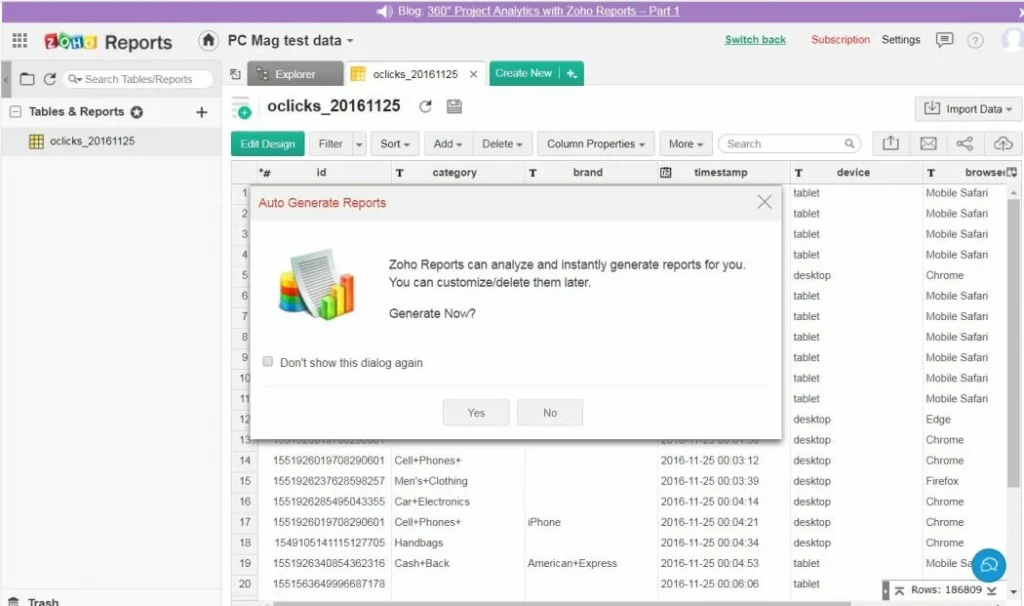
7. Integrations:
Zoho CRM’s “Integrations” feature is a valuable asset that enhances the functionality and efficiency of the CRM by seamlessly connecting with a wide range of third-party applications and services. This feature allows businesses to extend the capabilities of Zoho CRM and create a cohesive ecosystem that supports various aspects of their operations.
Through integrations, Zoho CRM can synchronize with popular tools for marketing automation, email campaigns, customer support, and accounting. This ensures smooth data flow and avoids duplication of efforts, optimizing business processes and promoting collaboration among teams.
Zoho CRM’s integrations offer a flexible and customizable approach, enabling businesses to choose the specific integrations that best suit their needs. From automating marketing campaigns to facilitating customer support interactions, the integrations feature empowers businesses to harness the power of specialized tools while centralizing critical customer data within the CRM.
8. Mobile:
Zoho CRM’s “Mobile” feature is a powerful and convenient tool that enables businesses to stay connected and productive on the go. With a dedicated mobile app, users can access essential CRM functionalities from their smartphones or tablets, ensuring seamless customer relationship management from anywhere.
The Mobile feature allows users to view and update customer data, manage leads, track sales activities, and access real-time insights while on the move. This mobility empowers sales representatives to respond promptly to customer inquiries, schedule meetings, and collaborate with team members in real-time.
Furthermore, the app’s offline capabilities ensure that users can continue working even without an internet connection, with data syncing automatically once the connection is restored.
Zoho CRM’s Mobile feature enhances productivity, responsiveness, and flexibility for sales teams, enabling them to maximize their efficiency and make the most out of every opportunity, irrespective of their location.
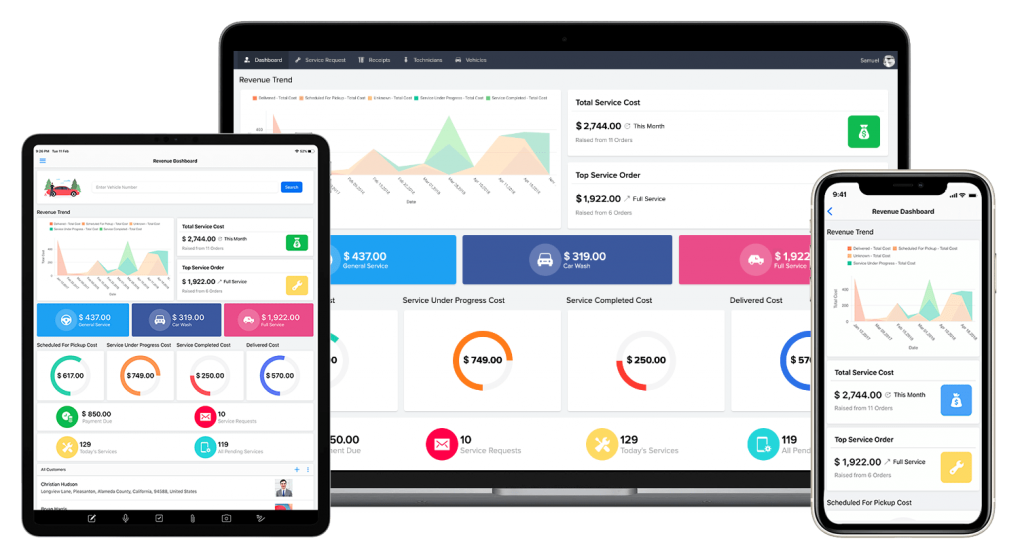
9. Legal & Security:
Zoho CRM’s “Legal & Security” feature is a critical aspect that prioritizes data protection and compliance for businesses. Zoho CRM takes security seriously and implements robust measures to safeguard sensitive customer data from unauthorized access or breaches.
The platform adheres to stringent industry standards and compliance regulations, such as GDPR and HIPAA, ensuring that businesses can confidently handle customer data while maintaining legal compliance.
Zoho CRM provides role-based access control, allowing administrators to define user permissions and restrict access to sensitive information based on job roles and responsibilities. This ensures that only authorized personnel can view and modify specific data, mitigating the risk of data misuse.
Furthermore, data encryption, secure data centers, and regular data backups are part of Zoho CRM’s security measures to ensure data integrity and continuity.
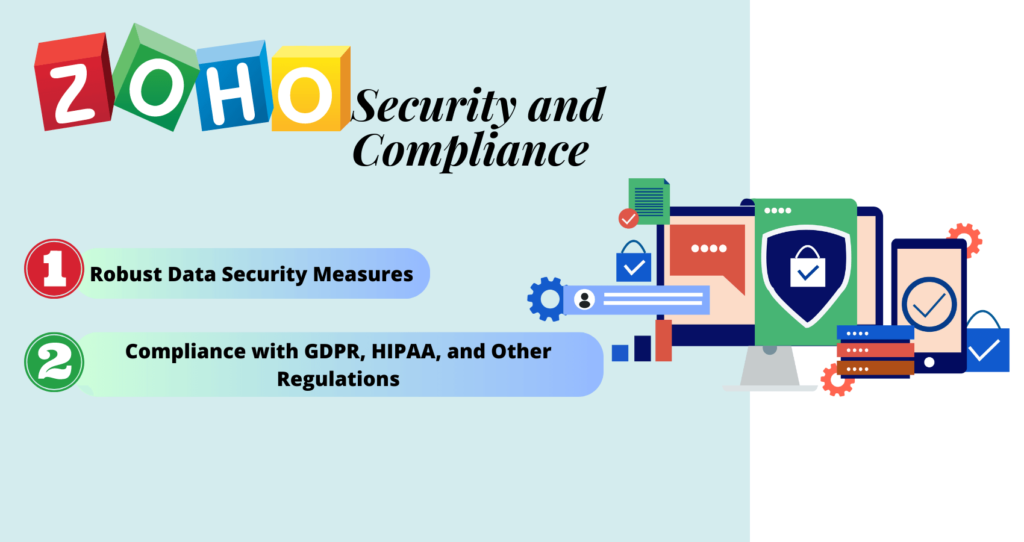
Zoho CRM Pricing:
Zoho CRM offers a flexible and competitive pricing structure designed to accommodate businesses of all sizes and requirements. The platform provides several pricing plans, each catering to specific business needs, making it accessible to startups, small and medium-sized enterprises, as well as larger corporations.
Zoho CRM’s pricing plans are categorized into four main editions: Free, Standard, Professional, and Enterprise. The Free edition offers basic CRM functionalities for up to three users, making it an excellent option for small businesses with limited needs and budgets.
For businesses seeking more advanced features, the Standard edition provides expanded functionalities such as sales forecasting, email integration, and workflow automation at an affordable price per user, per month.
The Professional edition offers comprehensive sales automation, advanced analytics, and integration with other Zoho applications. It is suitable for growing businesses looking to enhance their sales and marketing capabilities.
For large enterprises with complex sales processes and diverse teams, the Enterprise edition provides the most robust features, including territory management, advanced customization, and role-based security.
In addition to the main editions, Zoho CRM also offers add-ons and optional features that can be tailored to specific business requirements.
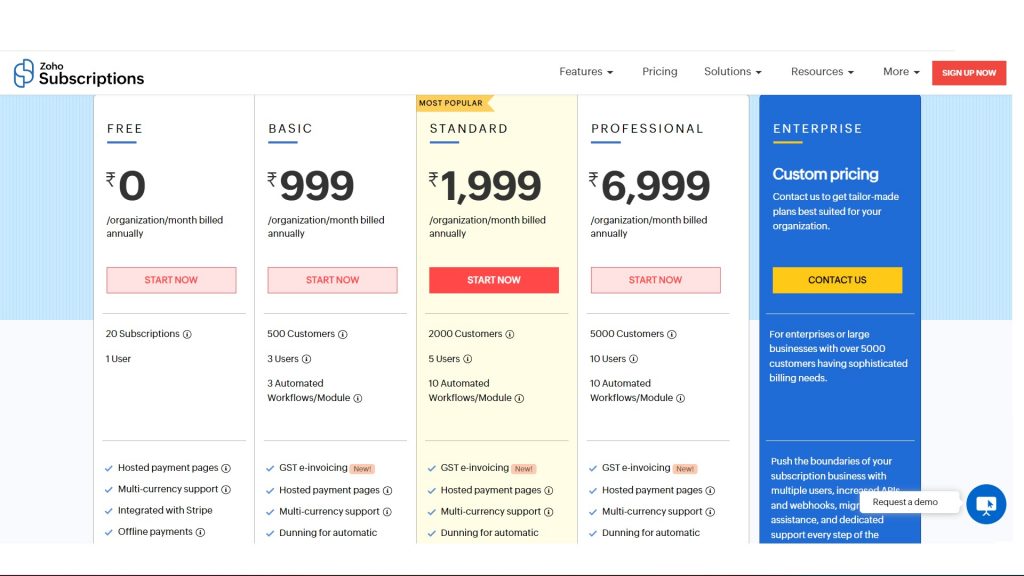
Zoho CRM Customer Support:
Zoho CRM prides itself on providing excellent customer support to ensure a seamless experience for its users. The platform offers multiple channels for support, including email, phone, live chat, and an extensive knowledge base.
For users seeking assistance or having questions, Zoho CRM’s email and phone support options are readily available. Their dedicated support team is responsive and aims to resolve issues promptly, providing guidance and solutions to users’ inquiries.
The live chat feature is a convenient way to access immediate help and quick responses from support representatives, enabling users to address urgent issues in real-time.
Zoho CRM also boasts an extensive knowledge base that contains a wealth of tutorials, guides, and articles to help users troubleshoot common problems and learn more about the platform’s features and functionalities.
Furthermore, Zoho CRM offers webinars and training sessions, allowing users to enhance their expertise and maximize the potential of the CRM.
Overall, Zoho CRM’s commitment to customer support ensures that users can rely on comprehensive assistance and resources whenever they encounter challenges or need guidance. This dedication to customer success contributes to a positive user experience and strengthens the relationship between businesses and the CRM platform.
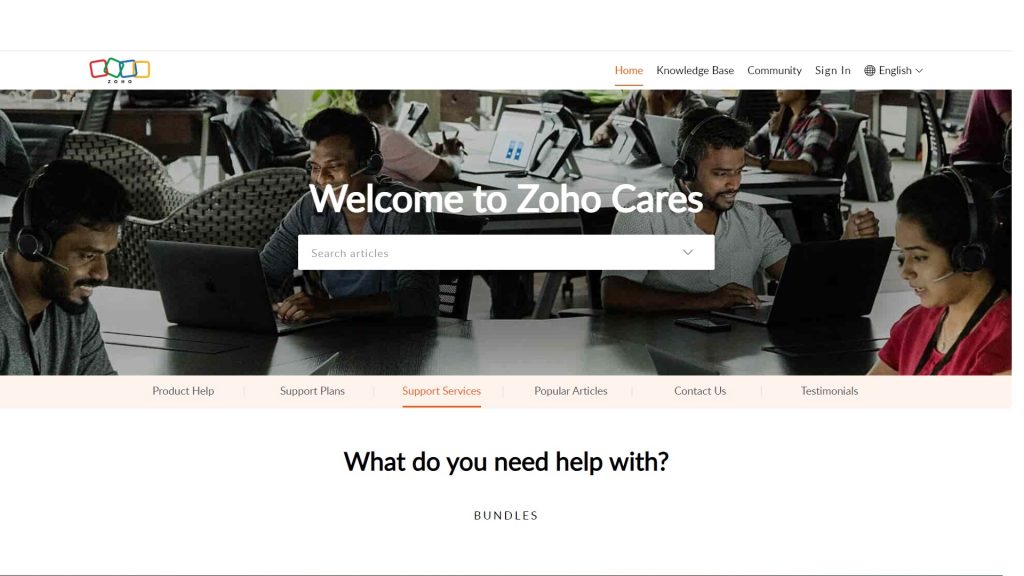
Zoho CRM vs. Competitors
In the competitive landscape of Customer Relationship Management (CRM) software, Zoho CRM stands as a leading player. As businesses seek the perfect CRM solution to meet their unique needs, comparing Zoho CRM with its competitors becomes crucial. This comprehensive comparison delves into the features, pricing, ease of use, integrations, customer support, and overall performance of Zoho CRM and its rivals. By exploring the strengths and weaknesses of each platform, businesses can make informed decisions to identify the CRM solution that aligns best with their requirements, driving improved customer relationships and increased productivity.
Zoho CRM vs. HubSpot CRM: Zoho CRM and HubSpot CRM are two prominent players in the competitive CRM software market. While both platforms offer powerful features for managing customer relationships, there are distinct differences between the two. Zoho CRM is known for its comprehensive feature set, ease of use, and customizable workflows, making it suitable for businesses of all sizes. On the other hand, HubSpot CRM excels in inbound marketing and lead generation capabilities, providing robust marketing automation tools. Ultimately, the choice between Zoho CRM and HubSpot CRM depends on specific business needs, preferences, and the desired level of integration between CRM and marketing automation functionalities.
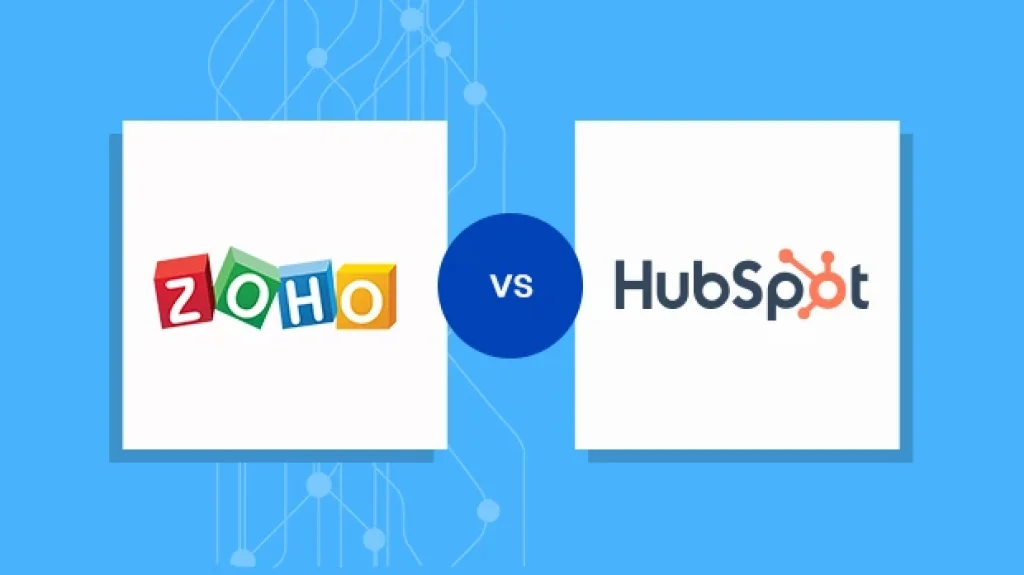
Zoho CRM vs. Salesforce Essentials: Zoho CRM and Salesforce Essentials are two popular CRM solutions catering to diverse business needs. Zoho CRM is lauded for its user-friendly interface, affordability, and seamless integration with other Zoho apps. It offers comprehensive features for sales and customer relationship management. Salesforce Essentials, on the other hand, is part of the renowned Salesforce platform, providing robust sales and support functionalities. It is known for its scalability and advanced automation capabilities. The choice between Zoho CRM and Salesforce Essentials depends on factors like budget, business size, and specific CRM requirements. Each platform offers unique strengths, making it essential to carefully assess business needs before making a decision.
Zoho CRM vs. Freshsales: Zoho CRM and Freshsales are two leading CRM solutions designed to streamline customer relationship management. Zoho CRM offers a comprehensive suite of features, customization options, and seamless integration with other Zoho apps, making it an ideal choice for businesses of all sizes. On the other hand, Freshsales excels in user-friendliness, intuitive interface, and AI-powered lead scoring. Its focus on sales automation and email tracking makes it suitable for sales teams looking to optimize their processes. The decision between Zoho CRM and Freshsales depends on specific business requirements, budget, and preference for features and usability.
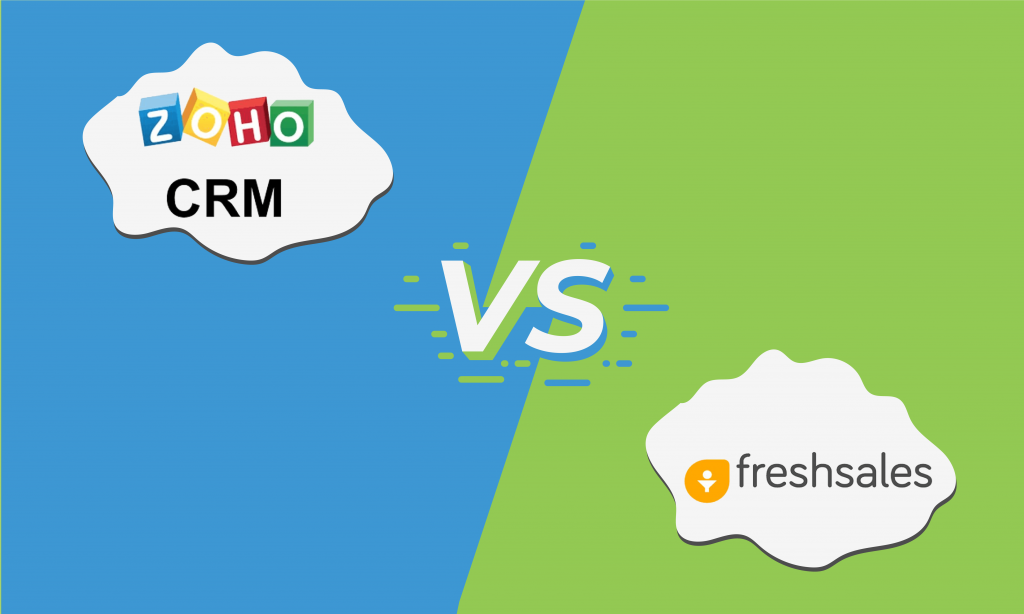
The Final Verdict:
After a comprehensive review of Zoho CRM, it is evident that the platform emerges as a strong contender in the CRM software market. With its extensive feature set, customizable workflows, and user-friendly interface, Zoho CRM proves to be a versatile solution suitable for businesses of all sizes and industries. The platform’s automation capabilities, seamless integrations, and mobile accessibility contribute to enhanced productivity and streamlined customer relationship management.
Zoho CRM’s competitive pricing structure, along with its free edition for small businesses, makes it an attractive option for cost-conscious organizations. Additionally, the platform’s commitment to data security and compliance ensures that businesses can trust Zoho CRM with their sensitive customer data.
Overall, the final verdict on Zoho CRM is positive, with its strengths outweighing any minor drawbacks. It empowers businesses to optimize sales processes, nurture customer relationships, and make data-driven decisions. As a result, Zoho CRM stands as a reliable and valuable CRM solution for businesses seeking to drive growth and success.
Frequently Asked Questions:
Q1. What is Zoho CRM, and what does it do?
Ans: Zoho CRM is a cloud-based Customer Relationship Management (CRM) software that helps businesses manage customer interactions, streamline sales processes, and improve overall productivity.
Q2. How can Zoho CRM help businesses improve their sales processes?
Ans: Zoho CRM offers features like lead management, sales automation, and analytics, enabling businesses to capture and nurture leads effectively, automate repetitive tasks, and make data-driven decisions to optimize sales strategies.
Q3. Does Zoho CRM offer a free version, and what are the limitations of the free plan?
Ans: Yes, Zoho CRM offers a free version for up to three users. The free plan provides basic CRM functionalities but has limitations on the number of records, email integration, and customizations.
Q4. Can Zoho CRM be customized to fit the specific needs of my business?
Ans: Yes, Zoho CRM is highly customizable. Users can tailor the CRM to their unique workflows, create custom modules, and define automation rules to align with their business requirements.
Q5. How does Zoho CRM handle data security and privacy?
Ans: Zoho CRM ensures data security through SSL encryption, data backup, and role-based access control. They also comply with industry standards like GDPR to protect customer data and privacy.
Q6. Does Zoho CRM integrate with other business tools and applications?
Ans: Yes, Zoho CRM offers seamless integrations with various third-party applications, including email marketing, help desk, accounting software, and more, to create a cohesive ecosystem.
Q7. What kind of customer support does Zoho CRM provide, and how can I access it?
Ans: Zoho CRM offers multiple customer support channels, including email, phone, live chat, and an extensive knowledge base. Users can access support resources from the Zoho CRM website.
Q8. Can Zoho CRM be accessed and used on mobile devices?
Ans: Yes, Zoho CRM provides a mobile app for both Android and iOS devices, allowing users to access and update customer data, manage leads, and perform other CRM tasks on the go.
Q9. Does Zoho CRM offer reporting and analytics capabilities to track sales performance?
Ans: Yes, Zoho CRM offers robust reporting and analytics tools, allowing users to create and schedule reports, analyze sales performance, and gain valuable insights into their business.
Q10. What are the key differences between Zoho CRM and its competitors, and why should I choose Zoho CRM for my business?
Ans: Key differences: Zoho CRM offers a wide feature set, customization options, a user-friendly interface, seamless integrations, and flexible pricing. Choose Zoho CRM for a versatile, personalized, and cost-effective CRM solution to streamline sales, enhance customer relationships, and boost productivity.

